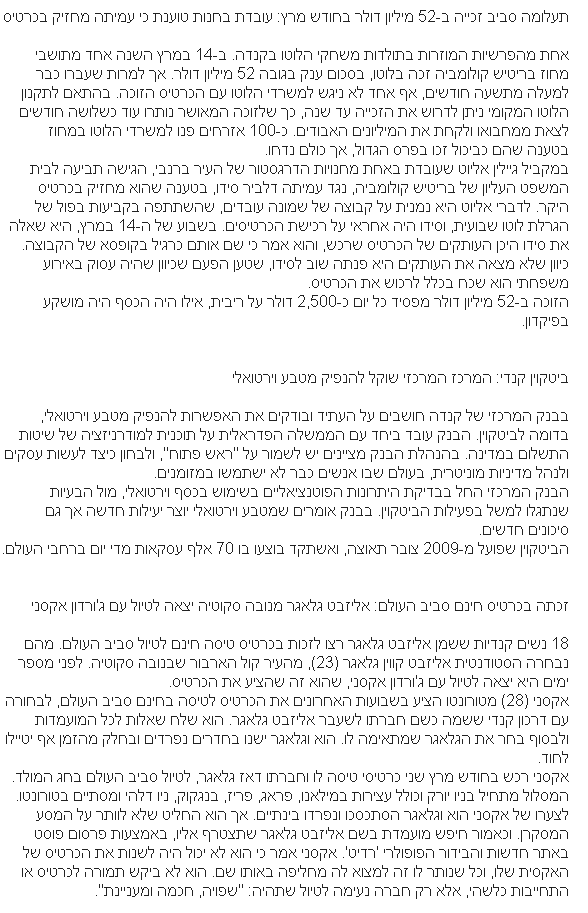Israel’s government pushed the country’s Supreme Court into a corner – but instead of weakening the judicial system and putting more power into the hands of the government, which was the aim of the coalition’s judicial reform package, the gambit incited a showdown that made the court stronger than it had been a year earlier.
That is the synopsis of a leading Israeli legal scholar. Yaniv Roznai, associate professor and vice-dean of the Reichman University’s law school and co-director at the Rubinstein Centre for Constitutional Challenges, was speaking virtually to North American audiences hours after Israel’s Supreme Court released a landmark decision Jan. 1. During the presentation, which was organized by UnXeptable, the international group that emerged in opposition to the judicial reforms, Roznai said the court also now has more legitimacy among the public, according to opinion surveys.
The 250,000-word written decision, with contributions from all 15 Supreme Court justices, represents the first time in Israeli history that the high court struck down a component of the Basic Law, which is effectively Israel’s constitution. The opinion overturned legislation the Knesset passed in July curbing the ability of judges to use “reasonableness” as a legal standard.
One justice wrote that Israel’s limited system of checks and balances means that the cancellation of the court’s ability to freely judge decisions by governments and ministers removed much of the ability of courts to defend individual and public interests.
While subjective, the idea of reasonableness has been a legal doctrine in Israel since the 1980s and was used a year ago to prevent Prime Minister Binyamin Netanyahu from appointing Aryeh Deri, the leader of the Shas party, from serving in cabinet because Deri had been convicted of tax fraud and bribery. The court declared it was not reasonable to appoint a convicted felon to lead a government department. This was the apparent impetus for a significant raft of legislation intended to reform the judicial system – proposals critics have called a “judicial coup.”
The reasonableness doctrine is available to the court if judges believe that elected officials did not take into account all relevant considerations before making a decision, or that those considerations were not given appropriate weight. It has been invoked numerous times on significant and less momentous government decisions.
In response to mass protests throughout 2023, the government at least temporarily backtracked on some of its judicial reform proposals, including efforts that would allow the Knesset to overturn court decisions by a majority vote and to give the government more direct control over the appointment of judges. That left the reasonableness doctrine as the remaining portion of the broader judicial reform proposal – and its rejection by the court is a blow to Netanyahu’s government. It also reopens the divisive topic, which has been largely dormant since the terror attacks of Oct. 7, possibly inviting social division at a time of national trauma.
Critics of the legislation, which passed the Knesset in July, argued that eliminating the reasonableness doctrine would allow the government to fire senior civil servants such as the heads of law enforcement agencies, making it easier to subvert the rule of law. Israel’s attorney general, for example, oversees the public prosecution system and determines whether politicians can be indicted on alleged crimes.
Since Israel has no formal constitution, the Basic Law serves as an alternative. However, whereas the American, Canadian and most other national constitutions have complex, in some cases almost impossible, amending formulas, Israel’s Basic Law can be amended by the Knesset by a majority vote. Therefore, Roznai said, “The only real check on political power is the attorney general and the judiciary, and the [Netanyahu government’s] reasonableness amendment was aimed to weaken precisely those two bodies.”
While the decision to overturn the law was close, with eight of the 15 justices in favour and seven opposed, three additional judges agreed that the court has the authority to strike down basic laws, but argued the time was not right.
The government defended the legislation by arguing that the idea of reasonableness was too arbitrary and, therefore, gave the court too much scope to intervene in areas the government considered the purview of the legislative branch. Critics, including Attorney General Gali Baharav-Miara, responded that the law eliminated guardrails that protect Israeli democracy.
Roznai, speaking Jan. 2, expressed mixed emotions about the court’s decision.
“I’m happy but, on the other hand, I’m a bit sad,” he said, noting that the entire controversy could have been avoided, “if the government had only worked a bit more gently, in a more clever manner. They could have enacted a more balanced amendment and then the court would not interfere.… I do not object to a reform in the judicial system. I think that any governmental system needs reform. In the education system we need to reform, in the health system we need reform, and also in the judicial system we need reform. But we need good reform. We need balanced reform. We don’t want something that would completely destroy the judicial system. We want something that would improve our systems and our democracy.”
A process that engaged different sectors of the society and tried to find a consensus on some of these issues could have resulted in constructive reforms, he said. Instead, millions of people took to the streets and polls showed that 80% of Israelis were opposed to the proposed judicial changes and a political schism has wrenched Israeli society amid a war.
Two days after Roznai spoke, UnXeptable hosted another event for North American audiences, featuring Dr. Tomer Persico, a research fellow of the Shalom Hartman Institute and former Koret Visiting Assistant Professor of Jewish and Israel Studies at the University of California Berkeley, where he was also a senior research scholar in the Centre for Middle Eastern Studies. He is a social activist advocating for freedom of religion in Israel.
Persico warned of cataclysmic impacts on global perceptions not only of Israel but of Jews if the trajectory of Israeli politics does not change. The current Israeli government, he said, includes individuals who are expressing ideas about the treatment of the people of Gaza that advocate ethnic cleansing and even genocide. Amichai Eliyahu, who was Israel’s heritage minister, was suspended from cabinet after saying that dropping a nuclear bomb on the Gaza Strip was “one of the possibilities” the government is considering.
While the pro-democracy groups and individuals who were rallying against the government before Oct. 7 have closed ranks in a show of unity and determination since the Hamas terror attacks, these recent statements – including reports that the government is considering moving Palestinians from Gaza to third countries and returning Israeli settlers to the enclave – make this fragile unity difficult, said Persico.
Most Israelis tell opinion pollsters they want new elections and a different government. Persico warned that approaches to internal and external affairs by the current government might not only further tarnish Israel’s reputation in the world, but Judaism’s. Former governments have failed to find common ground with Palestinians to create a two-state solution, he said, but even the hawkish past administrations publicly expressed support for the concept. With the current government seemingly giving up on the idea and some voices in the coalition speaking of expulsions of Palestinians, Israel is on a path to becoming more of an international pariah, he said.
“There will be a breaking point between Israel and the liberal West and that includes liberal Jews,” he said. “I really fear that Judaism itself is going to be stained by the mark of the occupation.… It might materialize that that Judaism itself will be stained in the same way as Christianity has been stained by the Crusades, the same way as Islam has been stained by Islamic terrorism and ISIS.”



